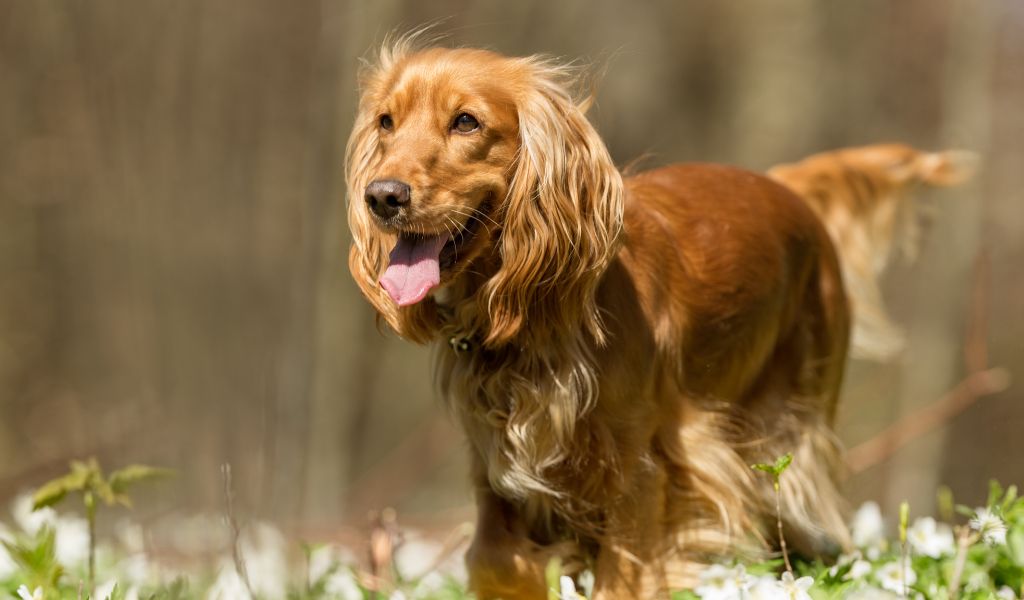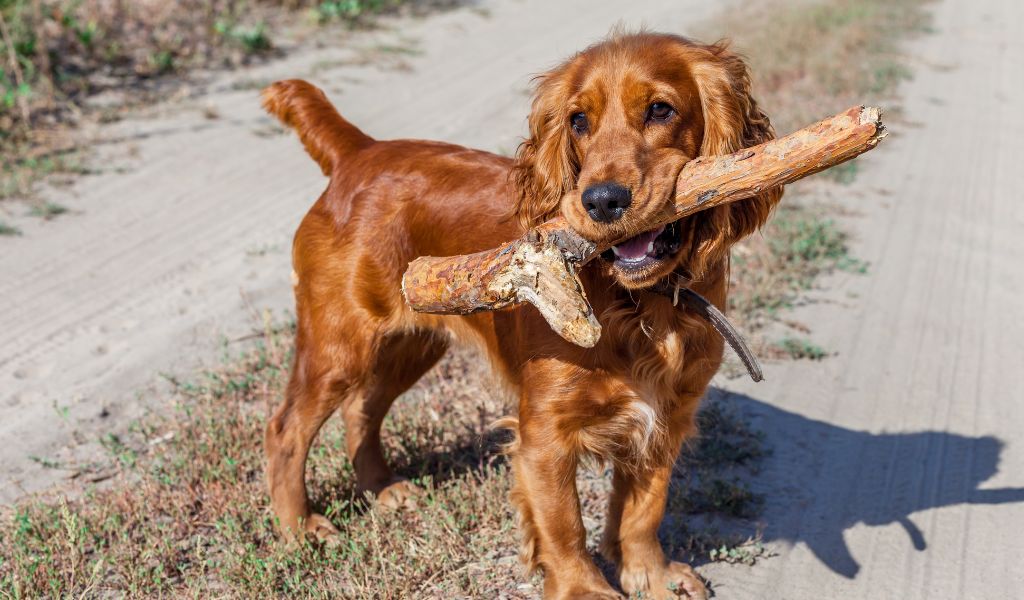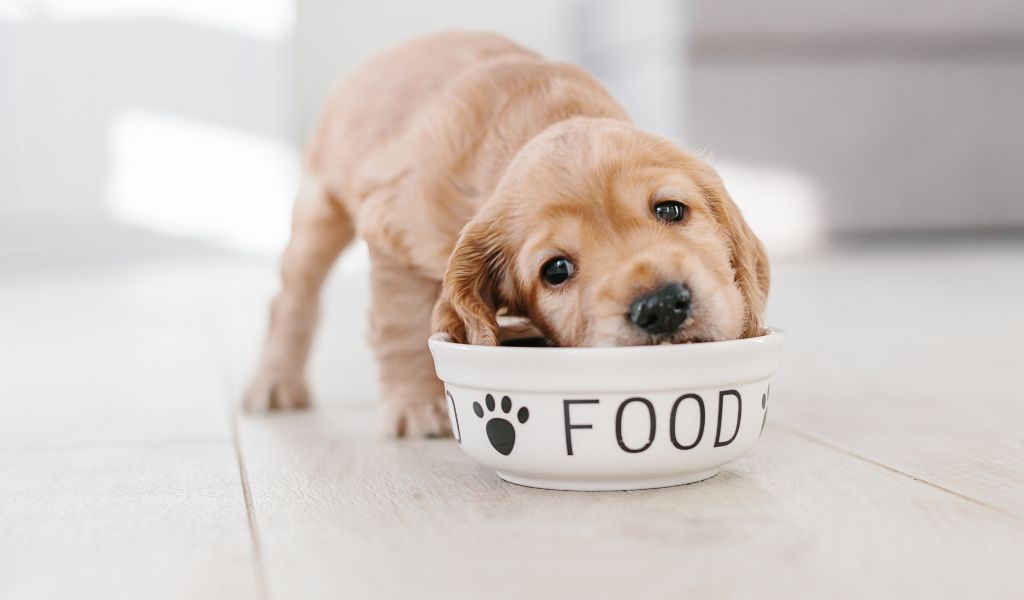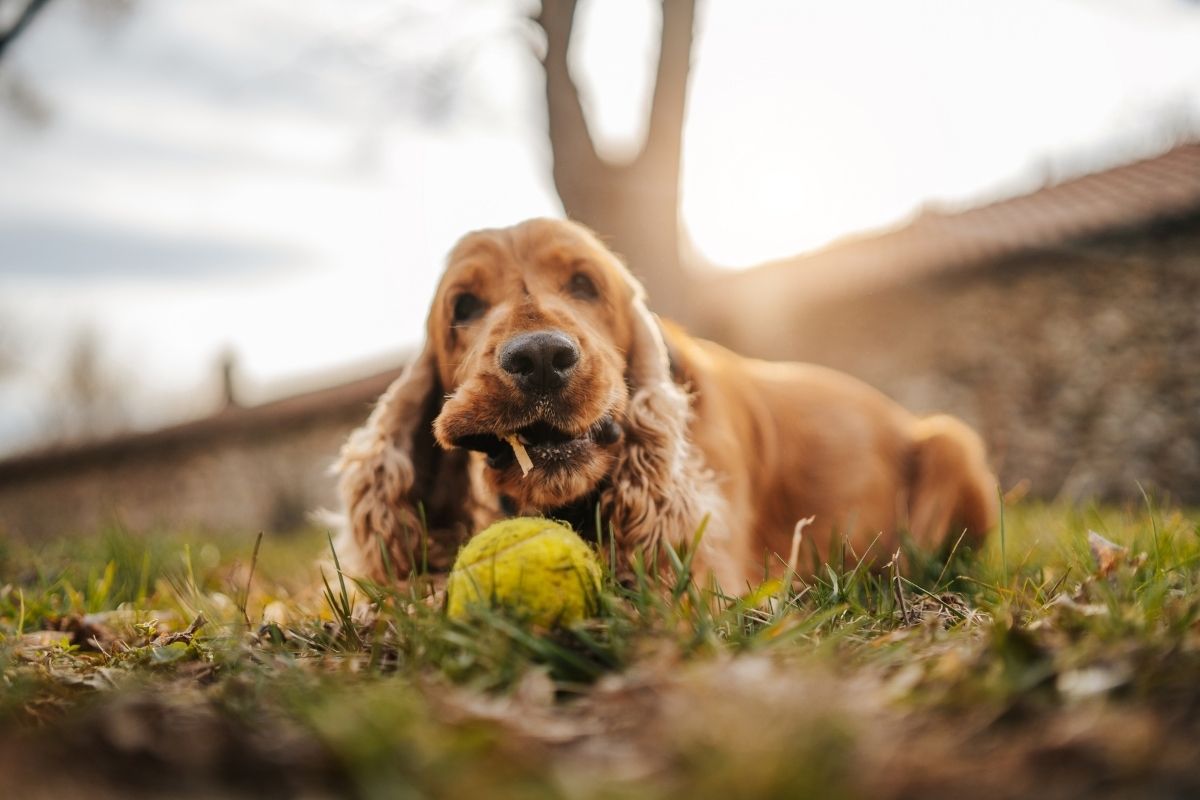Cocker spaniels are one of the most popular dog breeds in the world and are kept as pets, working gundogs, service dogs and used for a wide range of other activities.
This popularity makes them one of the most misunderstood of breeds, particularly among novice owners and those who are unfamiliar with the overall world of dogs.
Cocker spaniels are not aggressive dogs although, like all breeds of dogs, they can be aggressive at times. This is normally as a result of mistreatment, abuse or other external influences that affect the dog’s behaviour. A properly raised and treated Cocker is unlikely to be an aggressive dog.
What causes aggression in Cocker spaniels?
Cocker spaniels can become aggressive for a number of reasons.
Some common causes of aggression include:
- Fear and anxiety at being placed in unfamiliar situations
- Stress and tension caused by lack of exercise and mental stimulation
- Mistreatment, abuse or over-discipline by the owner or other family members
- Mistreatment or aggression from an earlier age that has not been properly dealt with
- Poor breeding practices
Although Cocker spaniels are not inherently aggressive dogs, they may have predispositions to certain behaviours which might cause aggression if allowed to continue.
For example, it is known that some strains of the breed are more likely to be withdrawn or timid than others, with golden coloured Cockers often being more likely to display aggressive behaviour.
This increases their chance of becoming fearful or anxious in certain situations and, if this develops further, then the dog could seem to be aggressive in certain situations manifesting in barking, growling and possibly biting.
This type of behaviour is often not aggression but behaviour that is borne out of the dog’s fear for the situation.
Poorly socialised dogs can often express fear and poor confidence levels through behaviour which appears to be aggressive.

Socialise your Cocker spaniel
When you have a dog, such as a Cocker spaniel, it is important to provide them with as many opportunities to develop their social skills as possible.
Just as with a human child, a puppy that experiences life, different places, people and sights, sounds and smells, will develop into a more fully rounded and measured adult – with appropriate skills and behaviours to match.
As soon as your puppy is old enough to get out and about you should help him/her to explore the world meeting people, children, other dogs and animals and generally finding out about himself and the world around him.
Aim to prevent future problems with behaviour from occurring by helping your spaniel to understand the wider world.
My article here will help you to introduce your Cocker spaniel to different scenarios which will help him to learn.
Help your older spaniel too
If you have an older Cocker, maybe a rescue dog or a pet from a relative or other source then the many of the strategies that are applied with puppies can also be used to help him.
You’ll need to be more watchful, particularly if you don’t know the background of the dog and if your dog shows signs of nervousness or aggression in certain situations then you should take a step back, and think the scenario through.
Often your vet can be a good source of advice and help for a nervous dog.

Training
Bored spaniels can become possessive and aggressive simply because they have no other way of expending their energy.
Just like a child cooped up all day in front of a games console, an unexercised, untrained spaniel will become frustrated and this could result in aggressive type behaviour.
You’ve got to make the effort to exercise and train a Cocker spaniel.
Thankfully it’s not difficult and most spaniels will happily chase a ball all day ( if that’s all you can manage).
You can make training a fun activity for you and the dog and the great thing about Cockers is that they love the interaction and the experience.
There are lots of training resources around from books and videos to clubs and societies, all of which will help you to become a decent spaniel ( and dog ) trainer.
A tired Cocker is unlikely to have the energy to be aggressive.
If you like reading then these are some of my favourite spaniel training books.
[amazon box=”1853104191,1846890705,1846893232″ grid=”3″]
Behavioural training
Aggression in Cocker spaniels is often behavioural and therefore by understanding the behaviour you can help to address or relieve it.
Specialist trainers or behaviourists may be able to help, particularly if your dog is showing signs of aggression towards people or other dogs.
As always, you should consider consulting with a veterinary surgeon to ensure that there are no underlying health issues associated with aggression which might require treatment.
Always get a Cocker spaniel from a reputable breeder
This applies to any dog and not just Cocker spaniels.
Over the last two to three years a plethora of ‘dog breeders’ have popped up, hoping to benefit from the raised prices of pedigree puppies and many have little, if any concern, for the quality of the dogs, the conditions that they are raised in or their futures.
Avoid these so called breeders.
Always do your homework when buying a spaniel puppy ( or other dog ). Speak to other owners, your vet and get as much advice as possible before venturing forth and acquiring a dog.
Poor breeding and early socialisation can result in wide ranging health and behavioural problems in dogs some of which don’t manifest until the dog is older – and this can include aggressive type behaviours.
You can read more on finding good breeders and puppy selection in my article on choosing a puppy here.

Health
An injured or ill Cocker might growl or even bite if approached.
Don’t confuse this with aggression as often the dog will have sent you other signals that he is in pain and doesn’t want you to go near him..
Unlike humans, who normally understand when someone is trying to help, a dog doesn’t have that mental capacity and will often bite out of fear of being hurt or exposed to more discomfort if he is in pain.
If you have any doubts or concerns about your spaniel’s health, or if he is unwell or injured, then you should get the professional advise and support that only your vet is qualified to offer.
Puppies
Puppies bite and nip and it’s important to not confuse this with aggressive behaviour.
Dogs do not have hands and they explore their world with their mouths and for puppies this means nipping and chewing.
Puppies teeth are needle sharp and a nip from a Cocker puppy can be painful and can draw blood – children are often the victims as they are the ones that play the most with the puppy.
When your puppy nips, tell him in a firm voice ‘No’ so that he begins to understand that biting human flesh is not allowed – and then give him a toy to play with – something that he can chew and throw around to his heart’s content.
[amazon box=”B01M0M1XWV” template=”horizontal”]
Final Words
Cocker spaniels are not aggressive dogs but it is important to remember that like children, they need boundaries and they respond well to training.
Always be kind to your spaniel and help him to become a valued member if society by spending time with him and helping him to understand the world around him.
Remember that he is just a dog – he doesn’t see the world like a human and there are strange things that can frighten and confuse him.
If you feel that your dog might be aggressive then you should always get professional advice – your vet is always the best place to start the dialogue and the process of helping your dog to address the problem.
Remember that Cockers beautiful dogs and really can become vital members of your family if you treat them right.




